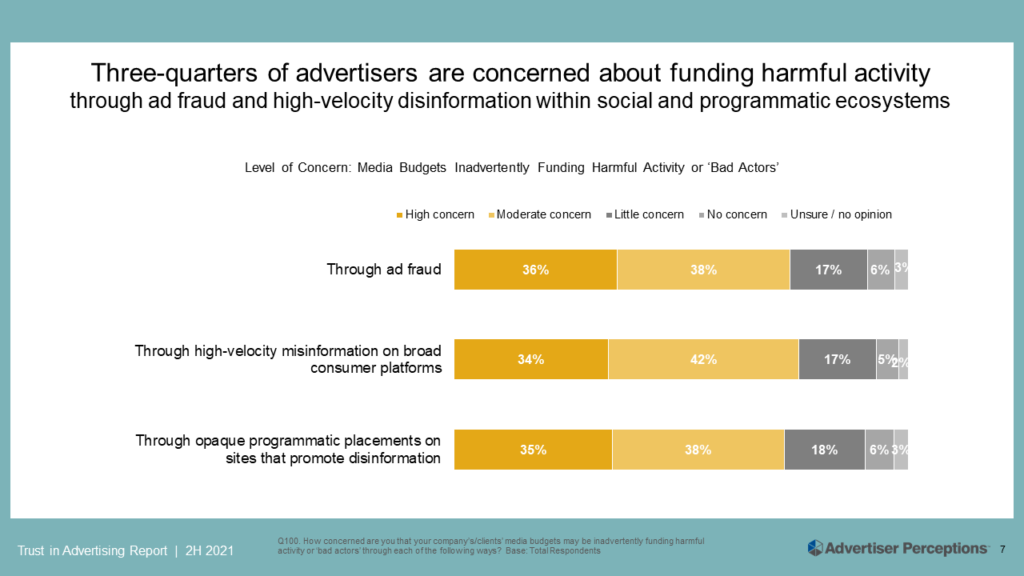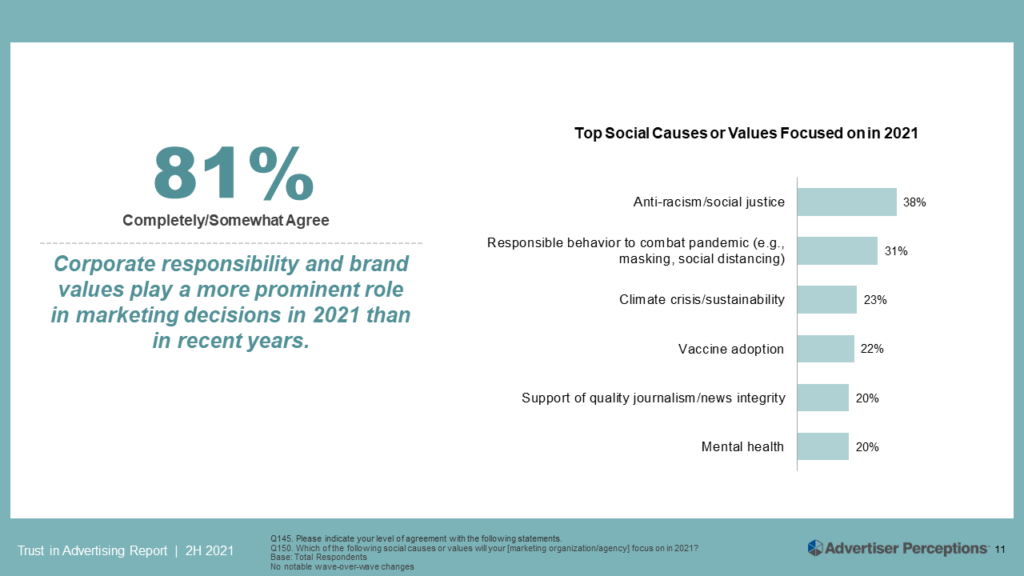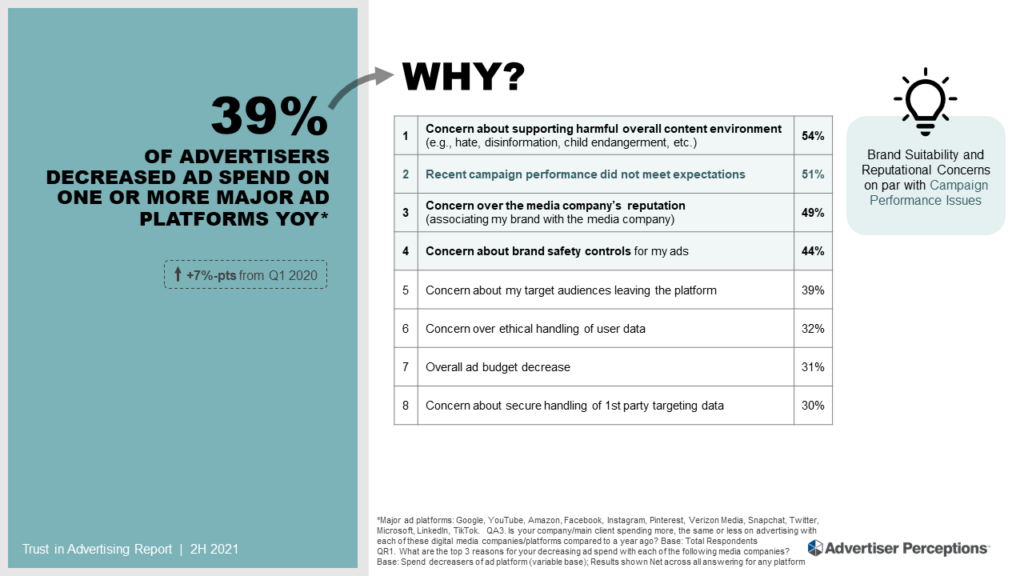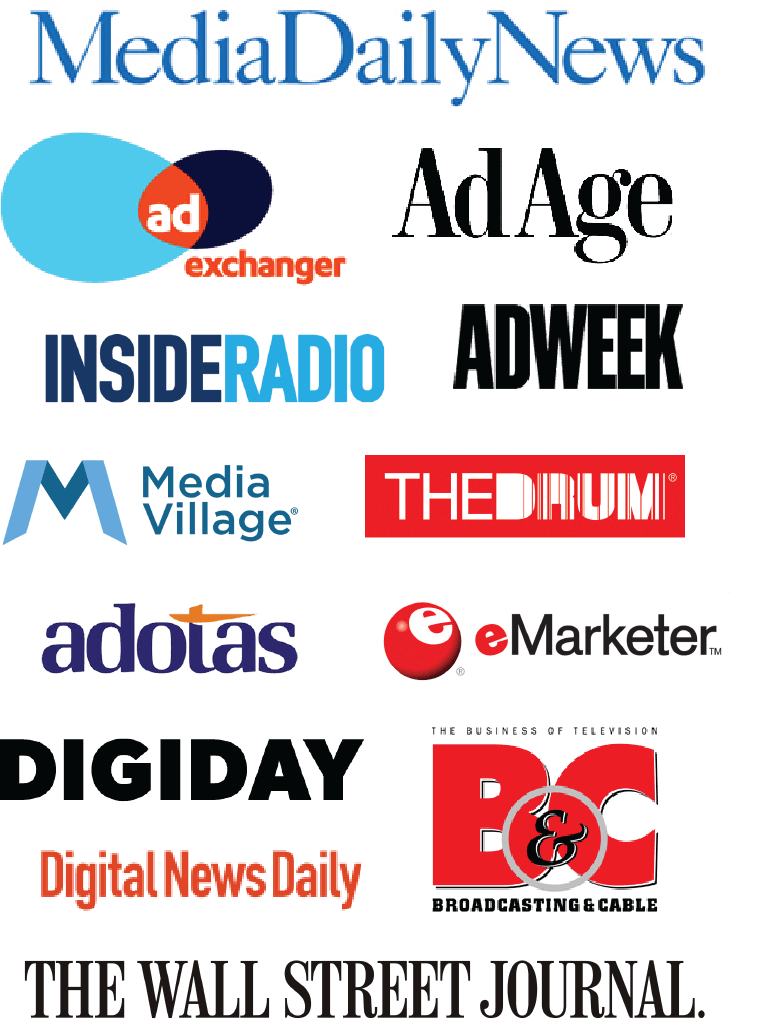Advertiser Perceptions finds trust factors now weigh more significantly on media buying than in recent years.
Advertisers used to be concerned principally about appearing alongside problematic content. Now most are also worried about whether their programmatic and social ad buys indirectly support fraud and dis/misinformation, according to the new Trust in Advertising Report from Advertiser Perceptions.

Advertisers feel current brand safety controls are inadequate.
Four in five advertisers want more oversight and control over where their ads are placed, and who profits from those placements.
“Advertisers’ approaches now go beyond the obvious brand safety floor content like guns, nudity or violence,” said Sarah Bolton, EVP/Business Intelligence at Advertiser Perceptions. “They’re assessing brand suitability through a lens specific to their brand and corporate values, and making those additional criteria for media buying.”
Eighty-one percent of marketers and agency respondents say that corporate responsibility and brand values play a more prominent role in marketing decisions in 2021 than in recent years. The top values advertisers focused on in 2021: anti-racism/social justice, responsible behavior to combat the pandemic, sustainability, news integrity and mental health.

Sixty percent of advertisers are willing to downgrade or discontinue a partner based on trust factors, regardless of how effectively the medium performs (KPIs). That percentage has risen 18 points since February 2020.
Brand suitability and reputational concerns are now on par with campaign performance when it comes to why advertisers would downgrade a media provider. So far this year, 39% of advertisers have decreased spending with a major platform. Leading the list of reasons, 54% did so out of concern about supporting harmful content such as hate, disinformation and child endangerment. Campaign underperformance ranked second, at 51%.

Large digital platforms are facing pressure from advertisers to step up brand suitability, accountability and transparency.
Fully three-quarters of advertisers say broad consumer platforms should be held more responsible for harmful content (including user-generated) on their sites. And 85% say digital platforms need to embrace third-party verification for brand safety.
“CMOs are looking to invest in media that promote their core brand values, which are violated when their dollars inadvertently prop up purveyors of harmful disinformation.” said Bolton. “It’s becoming a central lens for many advertisers. And as companies like NewsGuard make it simpler to track misinformation across media, we can expect more advertisers to make information integrity a baseline filter for media buying.”
Advertiser Perceptions interviewed 250 advertisers (57% agency, 43% marketer) in September for the latest installment of the Trust Report, which the company plans to update every six months.
“As advertisers become more sensitive to the long-tail impact of content, they will continue to make ethical checks a priority and tolerate what they view as trust lapses less,” said Bolton.
CONTACT US TO LEARN MORE ABOUT OUR TRUST IN ADVERTISING REPORT
Our latest Trust In Advertising Report equips media providers with insights that help them navigate the industry mandate to restore trust across the ecosystem, recognizing it as a key ingredient of overall business recovery.
SAMPLE OF TOPICS COVERED:
- Incorporating trust into brand strategy
- Consideration of trust in evaluating campaigns and partnerships
- Top priorities in determining trust
- Where trust breaks down and how to build that strong trust profile
- Media brand reputation and values in greater depth as the impact of the pandemic continues and social justice movements move forward with renewed fervor

